Medical Waste Disposal
Compliant and Reliable Regulated Medical Waste Disposal
At Medical Waste Pros, we understand the critical importance of proper medical waste management for healthcare facilities, laboratories, and other medical establishments. We prioritize safety, compliance, and environmental responsibility. With a commitment to excellence, we provide a comprehensive solution for collecting, transporting, and disposing of medical waste, ensuring strict adherence to regulatory standards.
Our dedicated team has the expertise and resources to handle all types of medical waste, promoting a cleaner and healthier environment while allowing you to focus on providing quality care. Discover peace of mind with our reliable and professional medical waste disposal services. Ensuring your facility or practice is compliant with all OSHA and State regulations is one of the best reasons to choose a provider in Medical Waste Pros’ Nationwide network.
Our pre-screened network of medical waste disposal companies can provide secure, dependable pickup services for regulated or infectious waste, sharps disposal, bio-hazardous and radioactive waste, and any other common waste disposal (paper, liquids, etc).
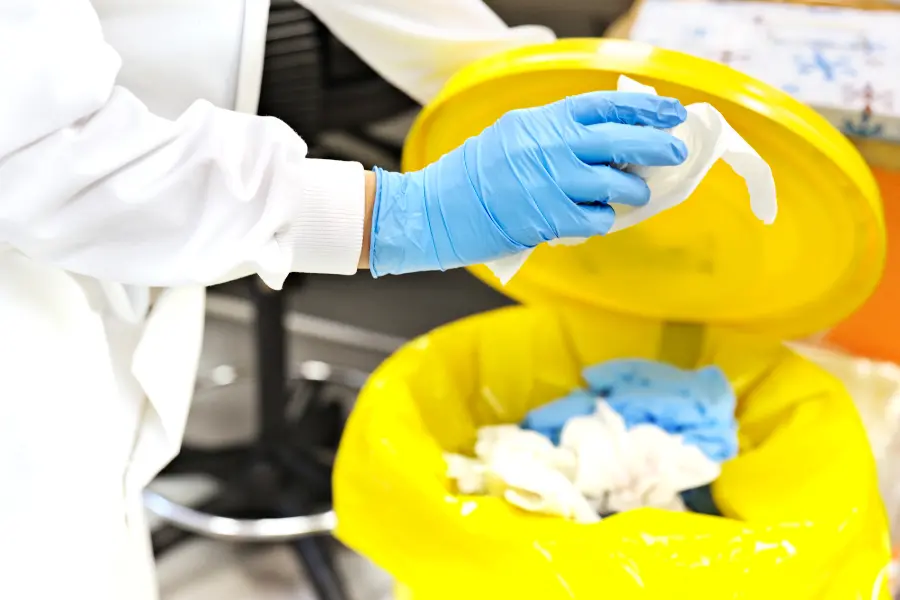
Our Medical Waste Services
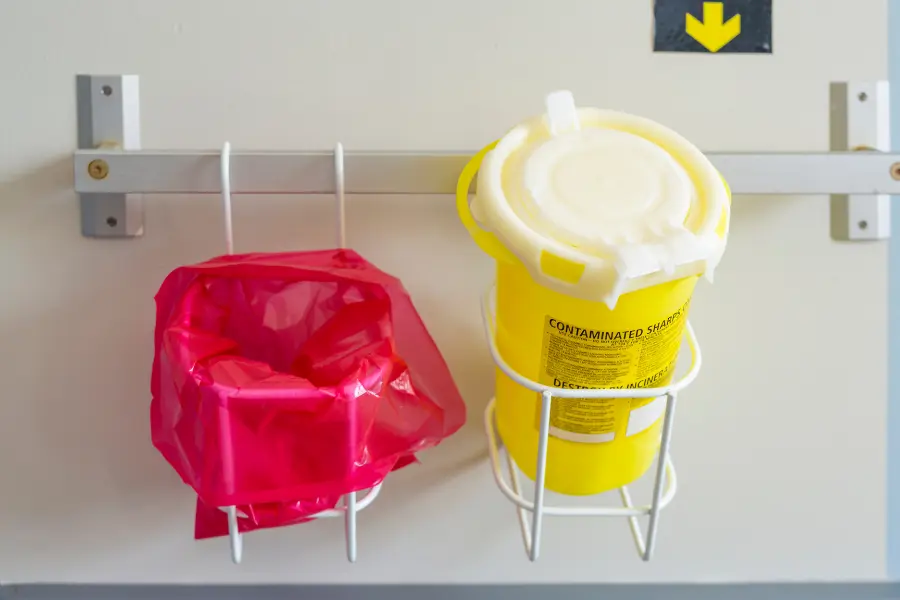
Regularly Scheduled Pickups
If you have a significant amount of medical waste to dispose of, our regularly scheduled service allows you to plan for ongoing pickup of medical waste—we schedule a time with your facility and will pick up and dispose of your medical waste based on your schedule, no matter if it’s daily, weekly, monthly or quarterly.
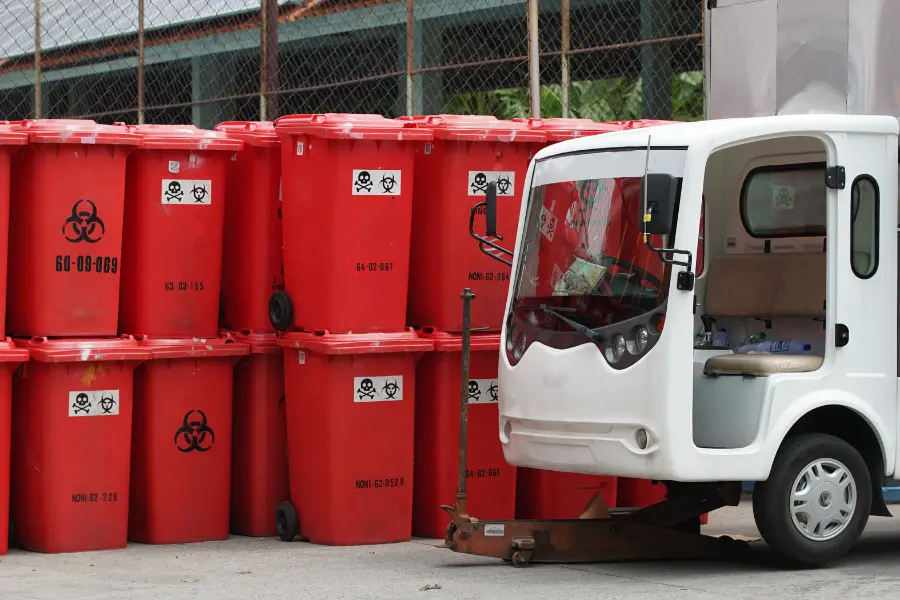
On-Call Pickups
We also offer on-call service for emergencies or facilities that don’t need medical waste pickup regularly (or only have a small amount that needs to be collected periodically). This service is identical to our regularly scheduled service but can be scheduled periodically whenever you need it.
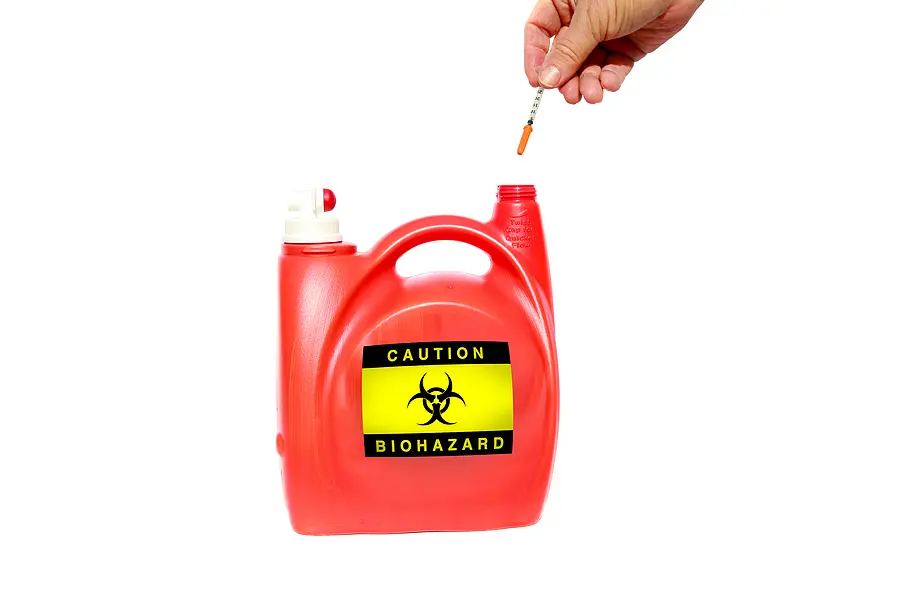
Mail-Back Services
A mail-back system is another safe, secure option to dispose of your medical waste properly. Each system includes all the components required to package your medical waste to be disposed of at a secure facility. Utilizing a mail-back system is an efficient way to collect, return, and dispose of sharps.
Why Choose Medical Waste Pros
Fast Turnaround
Get matched to a partner in 3-5 minutes. They will work with you to get a quote based on your specifications.
Nationwide Coverage
We have partners all over the United States.
Partnered with the Best
We have partners nationwide providing you with the best, secure options in your area.
Reasons to Choose Medical Waste Pros for Your Medical Waste Management

Keep in Compliance:
Adhering to strict regulations and guidelines ensures that your facility complies with local, state, and federal laws regarding the proper disposal of medical waste. This helps avoid legal complications and potential penalties.
Protect the Environment:
Responsible medical waste disposal contributes to environmental sustainability by preventing the release of harmful substances into the ecosystem. Proper treatment and disposal methods minimize the impact on air, water, and soil quality.
Customizable Solutions:
Professional disposal services offer customized solutions tailored to the specific needs of healthcare facilities. Our service providers can handle a variety of waste, including hazardous, regulated, chemotherapy, controlled substances, sharps, pharmaceuticals, and more. This ensures that waste is categorized, collected, and disposed of appropriately, addressing the unique requirements of different types of medical waste.
Community and Occupational Safety:
Effective medical waste management protects both healthcare workers and the surrounding community from potential health hazards. It reduces the risk of infectious diseases spreading and maintains a safe environment for everyone involved.
Reduce Risk:
Improper disposal of medical waste poses risks such as needlestick injuries, infections, and contamination. Proper disposal practices mitigate these risks, creating a safer workplace for healthcare professionals and reducing the likelihood of accidents.
Enhance Your Reputation:
Demonstrating a commitment to responsible medical waste disposal reflects positively on the reputation of your healthcare facility. Patients and stakeholders are more likely to trust an institution that prioritizes safety, hygiene, and environmental consciousness.
Cost-Efficiency:
Our efficient medical waste disposal services can contribute to cost savings in the long run. By implementing streamlined processes, facilities can optimize resource utilization and reduce the expenses associated with waste management.
Peace of Mind:
Our professional medical waste disposal services allow healthcare providers to focus on their core mission of delivering quality patient care. Knowing that medical waste is handled with precision and care provides peace of mind to both staff and administrators.
Regulated Waste Disposal
How Our Medical Waste Disposal Services Work
-
Contact Medical Waste Pros at (888) 755-6370, fill out the form, or use the live chat to connect to one of our medical waste disposal experts.
-
Tell us about your medical waste disposal project with details like the type of medical waste you have and how much.
-
We will connect you to safe and reliable medical waste disposal companies in your area equipped to handle your specific needs. They will send you free quotes on your project.
-
Choose the provider that best meets your needs and budget. You will then connect with the provider you choose and set up your disposal services, whether it’s one-time, recurring, or mail-back.
-
Your service provider will come to pick up your medical waste and properly dispose of it at their secure facility.
Understanding Medical Waste Management
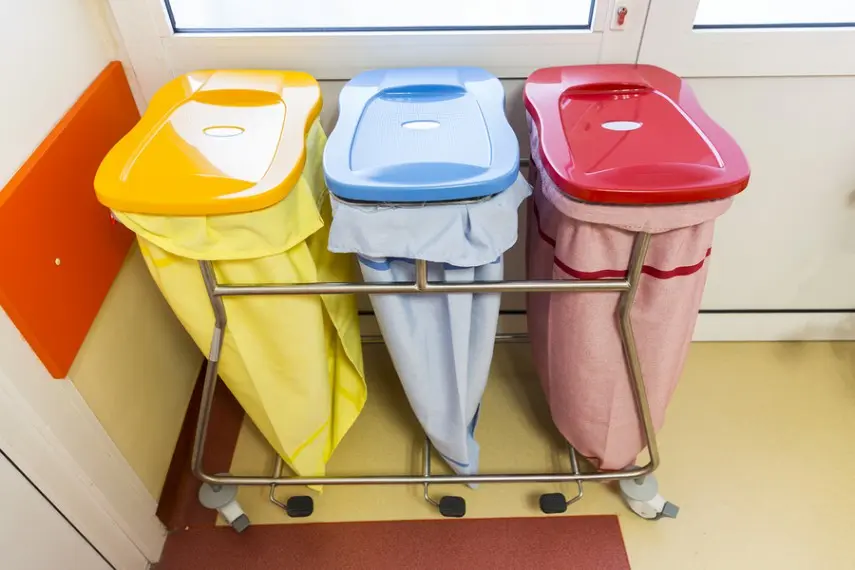
Mark and Separate Containers
Clearly label, mark, and identify which containers are for what type of waste. There are different types of packaging for common medical waste, regulated medical waste, and sharps.

Create a Formal Waste Management Plan
Know what your current processes are, if they exist, and then find a way to refine them. In addition, specify how each type of waste should be disposed of. Post these instructions next to each waste container.
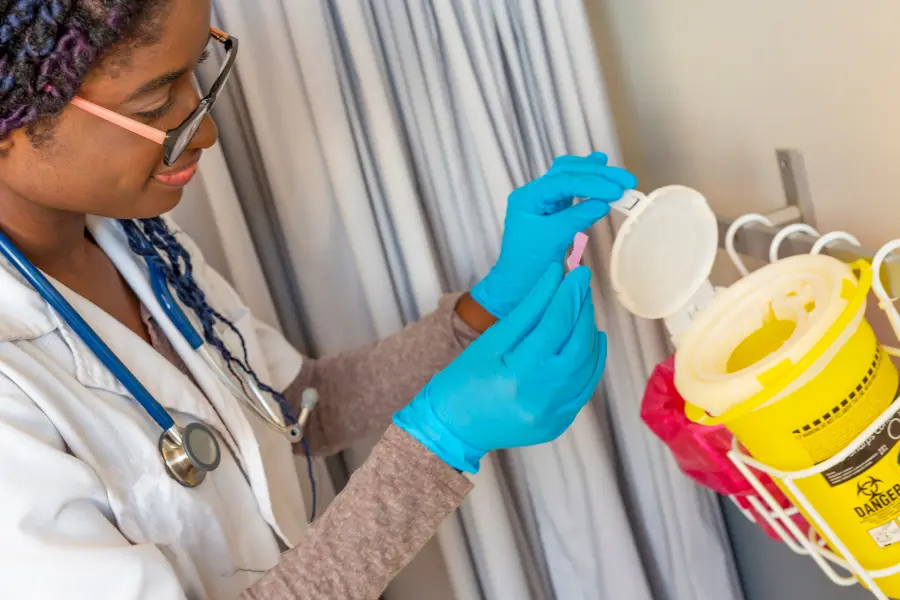
Train Your Employees
Ensure your employees know how to properly dispose of your facility’s medical waste. Answer questions, address concerns, and write down new ideas based on their feedback. Additionally, make sure that new employees receive training on the plan as well.
See What Our Customers Are Saying
Medical Waste Management FAQs
What types of waste do you handle?

Medical Waste Pros can handle a variety of medical waste across different industries, including:
How much does a medical waste disposal service cost?

The price of your medical waste disposal service will depend on the method you choose, the type of waste you have, the amount of waste you have, and other factors. When you contact us with the details of your project, our service providers will send you accurate price quotes for your specific needs.
Do you use safe medical waste disposal methods?

Yes, all of our service providers follow all state and federal regulations when it comes to disposing of medical waste. They use methods such as autoclaving, chemical treatments, and EPA-approved incineration.
How can I schedule a service?

Contact Medical Waste Pros at (888) 755-6370 or fill out the form. We will connect you with service providers in your area who are equipped to handle the job. You will schedule a service through them.
Can I just throw my medical waste away?

No, you can’t throw away medical waste. There are state and federal laws, including OSHA, FDA, DOT, and the EPA, that regulate how to dispose of medical waste. These regulations were put in place for your safety, in terms of the environment and health effects of improper disposal.
What goes in a sharps container?

Using an FDA-approved container, you can put these items in it:
- Needles and syringes
- Lancets and blood testing supplies
- Infusion sets and auto-injectors
- Scalpels and razor blades
- Broken glass and other sharp objects
What is red bag medical waste?

This is used for biohazardous waste, including bandages, gauze, gloves, gowns, items with dried blood and fluids, surgical tools and equipment, all blood-soaked items, discarded vaccines, pathological waste, cytotoxic waste, and more.
What goes in yellow containers for disposal?

These are used for trace chemotherapeutic waste that is considered “RCRA empty” according to EPA standards. This includes empty syringes and needles, empty IV bags and tubing, empty ampules and vials, gowns, gloves, aprons, used wipes and packaging, and more.
What types of medical waste goes in black containers?

This is used for chemotherapy waste that’s not “RCRA empty” including partially used vials, bags, and IV tubing, P-listed substances and containers, half/partial medication doses, pathological chemo waste, PPE, and cleaning materials.
What type of medical waste goes into a blue container?

These are designated for pharmaceutical waste that’s defined as hazardous by the RCRA. This includes Warfarin, Lindane, Nicotine, Cyclophamide, Bulk powders, and expired/unused pills and injectables.
What is regulated medical waste?

Several things are categorically defined as regulated waste, including:
-
Items saturated with blood or Other Potentially Infectious Materials (or OPIM)
-
Containers, catheters, or tubes containing blood, blood products or OPIM
-
Surgical specimens
-
Dialyzers and tubing
-
Microbiology specimens, used culture plates, tubes, bottles, and devices
-
Blood spill clean-up materials
-
Needles and syringes, scalpel blades, lancets
-
Glass pipettes, slides, and tubes
-
Broken glass
-
Staples and wires (Cardio-catheter wires)
-
Disposable suture sets biopsy forceps and more











